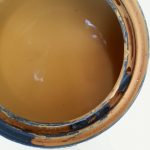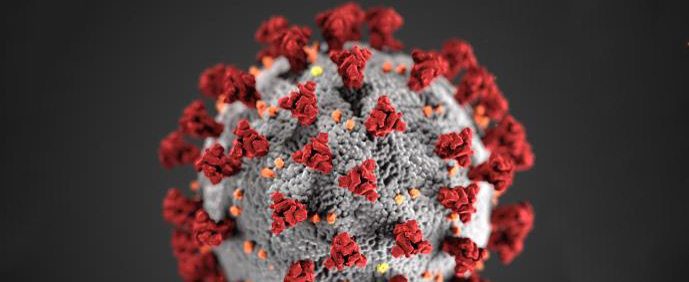This is the second installment in a short series of five posts dedicated to basic healthcare suggestions. Healthcare, like life itself, often goes in many directions on many levels all at the same time. Every once in a while it can be helpful to step back and re-focus on basic healthcare principles.
My February 2014 post referenced the decline in several health categories for the average American citizen. My goal is to provide some basic suggestions (or reminders) that can help you and your families fight this decline.
DECREASE CHEMICAL EXPOSURE!
You may feel this aspect of health care doesn’t apply to you or your family. Most likely you don’t work in a field with high chemical exposure, or your family doesn’t live near a factory or other source of chemical pollution. Unfortunately, exposure to chemicals in our society is unavoidable. Simply put, chemicals are in the food we eat, the water we drink, and the air we breath. Chemicals are found in a wide array of common household products – including not only the obvious cleaning products, but shampoos, conditioners, lotions, cosmetics, and the plastic containers within which they are packaged. In addition to the products you consume or put on your body, chemicals are off-gassing into your air from many products located in your home (and with an emphasis on energy efficiency many houses are so airtight that these chemicals aren’t readily released from your home). Chemicals are applied (i.e. as flame retardants) to household items like carpeting and mattresses. They are in many of the materials used to build your home. They are drifting in your windows from someone’s lawn that was sprayed to reduce weeds or insects.
Why it’s important to decrease chemical exposure!
Most people probably don’t feel any direct effects from chemical exposure, or at least can’t link any ill-effects directly to this exposure. This is normal, and this is logically why it has proven difficult to reduce the widespread use of all these chemicals that end up in our air and water and food. However, a growing number of studies are finding chemicals linked to increased rates of cancer, increased hyperactivity among children, increased disruption of our endocrine system, and decreased IQ’s.
- In 2010 the President’s Cancer Panel released an important report declaring that chemicals threaten our bodies (summarized here by the NYT)… The report blames weak laws, lax enforcement and fragmented authority, as well as the existing regulatory presumption that chemicals are safe unless strong evidence emerges to the contrary. “Only a few hundred of the more than 80,000 chemicals in use in the United States have been tested for safety,” the report says. It adds: “Many known or suspected carcinogens are completely unregulated.”
- Dr. Frederica Perera, director of Columbia Center for Children’s Environmental Health, recently published a study in the Journal Pediatrics demonstrating an association between the chemicals they found in babies’ cord blood and later problems on intelligent tests and development. The higher the concentration, the more the IQ among children dips.
- Three-year-old children had significantly higher hyperactivity scores when consuming a daily drink containing 20 mg of artificial food coloring and sodium benzoate preservative, compared to when they were consuming placebo drinks.
- A recent Stanford University study, examining 192 pairs of twins, where one twin was autistic and one was not, found that genetics account for 38 percent of the risk of autism and environmental factors account for 62 percent.
- The average newborn has over 200 different chemicals and heavy metals contaminating its blood when it takes its first breath. 158 of them are known to be toxic to the brain. It’s little wonder that rates of autism, ADHD, and behavioral disorders are all on the rise.
 Certain chemicals can act as ‘endocrine disruptors’ by throwing off the natural balance of our hormones and negatively affecting our endocrine system. These imbalances affect things like our growth (you’ve probably heard of Bovine Growth Hormone [BGH] in meat and dairy products), or our reproductive biology. There are many substances, including components of plastics, pesticides, and exhaust, that mimic estrogen. This has a whole range of complications for both men and women, most notably increasing rates of breast cancer and prostate cancer. Even tap water is a source of unwanted additional estrogen, so you might want to read about water filters below.
Certain chemicals can act as ‘endocrine disruptors’ by throwing off the natural balance of our hormones and negatively affecting our endocrine system. These imbalances affect things like our growth (you’ve probably heard of Bovine Growth Hormone [BGH] in meat and dairy products), or our reproductive biology. There are many substances, including components of plastics, pesticides, and exhaust, that mimic estrogen. This has a whole range of complications for both men and women, most notably increasing rates of breast cancer and prostate cancer. Even tap water is a source of unwanted additional estrogen, so you might want to read about water filters below.
What can you do to reduce your chemical exposure?
We can decrease exposure to chemicals in a number of ways. One significant way would be to buy organic, BGH-free food to avoid herbicides, pesticides, and hormones – in my Pesticides in Produce post I listed those fruits and vegetables to watch out for that have the highest levels of chemicals. When buying body products there can be a lot to consider if you want to decrease your chemical exposure. Here’s a link to get you started, and another with even more information.
To reduce chemical exposure from the water you drink install a water filter in your home. Buying bottled water is not a wonderful alternative since the water is usually stored in plastic containing Bisphenol A (BPA), which will contribute to the contamination of the water. A study by the Centers for Disease Control and Prevention (CDC) found detectable levels of Bisphenol A (BPA) in 93% of people six years and older. You can buy reusable water bottles that are BPA-free to carry filtered water from your home. Incidentally, many other packaged/canned foods are stored in containers containing BPA so choose ‘BPA-free’ whenever it’s available.
Air filters will help clean the air you breathe. This is especially important if you have new construction, new carpeting, newly refinished woodwork or freshly painted walls. All of these things are sources of volatile organic compounds (VOCs). As awareness and concern of air quality increases, numerous paint producers are marketing low-VOC product lines. Ventilate your indoor airspace well when VOC’s are present, but minimizing the use of these products is the biggest step toward reducing this aspect of chemical exposure.




